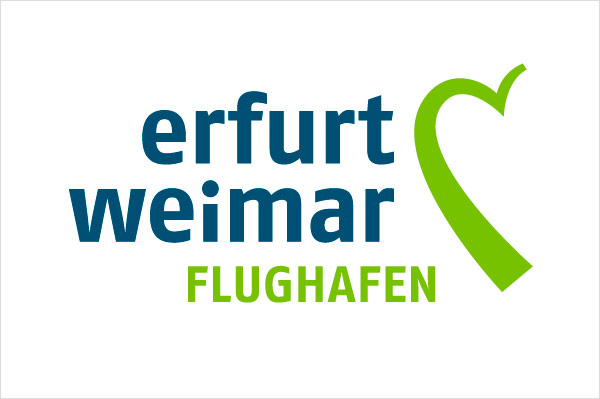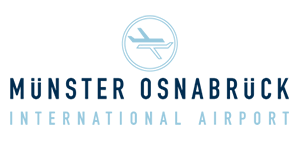Accessible
Thanks to its central location in Europe, it’s easy to reach Germany from all over the world. One of the best transport infrastructures on the continent awaits you here. Special services make travel easier for visitors with disabilities.
Germans certainly love their cars! If you’re looking to travel across Germany in your own car, you’ll be able to make the most of the country’s superb infrastructure. If you’re not travelling with your own car, contact your local rental car company. Renting vehicles is usually possible for customers with disabilities, but you should find out as early as possible which vehicle can be made available at your travel destination and make a firm booking.
Parking spaces for disabled travellers are available outside most places where tourists convene, such as attractions, museums, and accommodation providers. In the database for the “Tourism for All” labelling system, you’ll find information on the parking spaces for every option featured (see “Tourism for All”).
While the arrangement with the establishment in question is usually fine for in-house car parks, you’ll need a special permit for public parking spaces for people with disabilities. EU citizens can apply to the relevant authority in their home country for the necessary blue EU parking permit. For non-EU citizens, the road traffic office of the destination may, if necessary, issue an exemption for the duration of the visitor’s stay in Germany.
Rest areas on motorways usually have both parking spaces and toilets for disabled travellers. A Euro Key may be required for people with disabilities to access the toilets. For information on this, see Practicalities/toilets.
In major train stations in Germany, the platforms are usually step-free and equipped with guidance systems. Getting on and off trains is often impossible without steps. Technical aids that can only be used by Deutsche Bahn employees are available. Seats for disabled passengers are specially highlighted on Deutsche Bahn trains. Prior booking is recommended.
You can get assistance with getting on, changing and alighting from the Deutsche Bahn mobility service centre. The contact details and all information about accessible travel by rail in Germany can be found under the following link:
Go to information about accessibility with Deutsche Bahn
Local transport companies also offer assistance services, especially in large cities and metropolitan areas. You can find detailed information about the local services on the websites for the cities and regions linked to under Accessible travel destinations.
Discounts may be available for disabled travellers and/or their companions. Just ask!
Long-distance buses connect the major German cities and specific destinations. The stops are often near the train station, thus guaranteeing public transport connections. However, bus platforms are not fully accessible and wheelchair spaces are currently not available in every bus. It’s essential to book early, giving details of your specific needs.
Discounts may be available for disabled travellers and/or their companions. Just ask!
For more information about Germany's largest long-distance coach company, see the the following link:
You should inform your airline as early as possible about any needs in terms of assistance, seating and transporting aids.
Many airlines are geared towards guests with reduced mobility and offer custom services. For instance, Deutsche Lufthansa has set up the service number 0800 8384267, which is toll-free for calls from the German landline network, and provides information online about the most important issues in accessible travel.
More information about the Lufthansa service for plane passengers with particular needs
You can request assistance at international airports in Germany in order to be accompanied to check-in, the security check and gate, and driven if necessary. Prior booking is advised. More information – on the accessibility of airport shuttles, for instance – can be found on the website of the relevant airport.
You can find further useful information on the subject bundled in the information brochure "Accessible air travel". They range from booking a flight and registering the need for assistance to the day of travel and further information. Click here(PDF, 0.3 MB) to download the brochure!




 Erfurt-Weimar (ERF)More
Erfurt-Weimar (ERF)More


 Hanover-Langenhagen (HAJ)More
Hanover-Langenhagen (HAJ)More


 Munich (MUC)More
Munich (MUC)More
 Münster/Osnabrück (FMO)More
Münster/Osnabrück (FMO)More
 Nuremberg (NUE)More
Nuremberg (NUE)More
 Saarbrücken (SCN)More
Saarbrücken (SCN)More

Practical information for planning your journey
We’ve put together some practical information on planning a journey for visitors with disabilities.
In most cases, assistance with using public transport is available in Germany. For more detailed information, see Getting there and around accessibly.
On-site assistance is also available. Volunteer guides can be booked for some city or museum tours. Just ask!
Do you want to use care services during your time in Germany? Then check whether these special services are available when selecting your accommodation. Care services can be booked directly in “care hotels”, while other types of accommodation work with local care services or can put you in contact with people in the local area. Get in touch with the places that you're interested in staying at and inform them of your needs.
Providers of special assistance services can provide your with guides and carers for your entire trip. Doing a bit of research can really pay off!
Many more towns and cities now have three-dimensional city models or tactile maps for key sites. Tourist sights and museums often have such tactile items ready and waiting. It’s always worth asking!
Regardless of which tour operator you opt for, you’re bound to find what you’re looking for at the German Centre for Accessible Reading (Deutsches Zentrum für barrierefreies Lesen, dzb lesen). This lends out and sells books in formats such as Braille writing, German and foreign-language audio books and tactile relief images. Ask what’s on offer at your holiday destination!
Go to the German Centre for Accessible Reading (Deutsches Zentrum für barrierefreies Lesen, DZB)
You can find sign language interpreters via the Federal Association for Sign Language Interpreters in Germany ( Bundesverband der Gebärdendolmetscher in Deutschland).
Go to the Federal Association of Sign Languages Interpreters in Germany
People with disabilities and/or their carers are granted free or reduced admission to many places, including museums, theatres, famous sights or parks. Lots of places offer discounts for city tours and public transport. In most cases, you will just need to show proof of disability. German citizens with disabilities have a special pass for this purpose. If you have a similar document issued by the authorities in your country, you’re advised to bring it with you. Do enquire about discounts if they're not specifically mentioned in the list of prices!
If you require specific aids on site or need to get your own aids repaired during your time in Germany, you can contact a German specialist whenever the need arises.
People with impaired hearing should contact a hearing care professional if they have any questions about hearing devices or the like. An optician can take care of all matters relating to visual aids. Both specialists tend to be based in the bigger cities and can be contacted during regular office hours.
You can get lots of other aids from healthcare supply stores. Some healthcare supply stores work with hotels to provide aids and even care beds, as required. In the event of a minor faults with your wheelchair or walking frame, the local bicycle shop may be able to help.
Please note the following in order to use your electronic devices correctly. In Germany, the mains voltage is 220 V. Type F sockets (grounding-type plugs) are standard. Type C (Euro plug) is commonly used for devices with protective insulation and low power consumption. Hotel bathrooms usually have shaver sockets that can also take British and US plugs. Please bring any extension cables, adapters or power supply units with you.
Inductive audio loops are installed in many events venues and at information counters around Germany. Audio loops transmit sound, background noises and spoken words to hearing devises and cochlear implants. To use audio loops, switch your receiver to the T-coil. In events venues, you may need to go to a specific area or sit in specific seats for optimal reception. Please check this with the operator.
The hearing systems used by tour guides often work without their own receiving device, such as hearing aids or cochlear implants. Those on the tour are given their own device for receiving sound, so that they hear a louder version of everything that the tour guide says into their little microphone. It’s best to find out about the technology used in advance.
For more information on this, go to Getting there and around accessibly
Germany has one of the best healthcare systems in the world. You can rely on first-class medical care on site during your stay in Germany.
You can call for help from the fire brigade and rescue service around the clock on the emergency number 112. This number is free of charge from all networks, including mobile phones. Please only dial this number if there is a danger to life and limb.
Doctors of all specialities can be found in the larger towns. Outside of normal practice hours, use the nationwide number 116 117. Hospitals are located in big towns and cities.
If you are unable to make an emergency call, you can reach the rescue control centres quickly and easily using a German-developed SOS app.
Find out more about the HandHelp emergency app here.
Drugs are only sold pharmacies in Germany. You can find pharmacies nationwide in German cities as well as at larger train stations and airports. Outside of the usual opening times, pharmacies have a rotating on-call service. Some herbal remedies, bandages and nutritional supplements are also available from drugstores
In Germany, toilets for people with disabilities are particularly plentiful in public spaces and in facilities that are specifically geared towards visitors with disabilities. Unfortunately, they're not yet universally available, so before taking a tour, you should find out the location of the nearest disabled toilet. Our partners provide useful information (see Accessible travel destinations), tourist information available on site, or the online map wheelmap.org.
Many public disabled toilets can be accessed independently and free of charge with a Euro Key. This is another brainchild of Germany! The CBF Association first came up with the idea in 1983 in Darmstadt. The Association remains the contact for ordering keys today: simply send them an email with proof of your disability (pass or medical certificate) at and you’ll receive the key at cost price. If you have any questions, you can contact the Association via the following details:
Telephone 0049 (0)6151 / 8122 – 0
Website: www.cbf-da.de
German is the predominant language. There are lots of different dialects and accents that provide a clue as to which area someone is from. However, “Hochdeutsch” is understood everywhere. What’s more, most people speak some English.
There are also lots of dialects in German Sign Language (GSL). However, deaf people from different regions are able to understand each other. Interpreters translate into GSL or International Sign Languages. Speech interpreters write down the spoken word to allow better understanding for people who are hard of hearing.
For visitors who are not fluent in German, information and guided tours in plain language can also be of interest. This simplified form of the German language was developed by and for people with cognitive impairments and corresponds to the English "easy (to) read", "plain English" or “easy English” systems. Guided tours are commonly offered in museums, and information is increasingly being provided in easy language on the websites of travel destinations and cultural institutions.
The currency used in Germany is the euro.
Paying in cash is very popular in Germany. However, most shops have the technology to accept payment by debit card or credit card. You can get cash at ATMs, although only a few are accessible to everyone. Often, however, they do have stepless access, space for movement in front of the machines and control elements at a reasonable height.
For further information about travel planning with disabilities, please contact our partners in the federal states and travel destinations (seeAccessible travel destinations) or at the local tourist information office. Relevant associations such as the Sozialverband VDK, the German Association for the Blind and Visually Impaired and many more also provide specific information about individual types of disability.